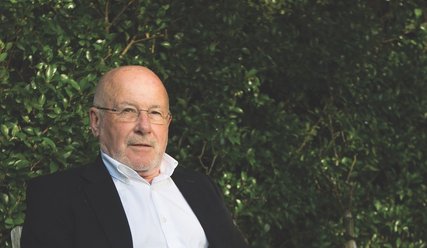Is Dry July preceded by monsoon June?
In 2019/2020, one in five adults (20.9 percent) in New Zealand were classified as hazardous drinkers.1 Alcohol consumption contributes to $7.85 billion in alcohol related harm each year.22
In 2008, three men in Australia decided to fundraise money for a family member affected by cancer by giving up alcohol for the month of July. The goal was $3,000 but they received over $250,000 after their publicity stunt took off.
Dry July has been promoted in New Zealand since 2012, and I must admit, I’ve cynically believed it to be a gimmick with little impact on the crisis of commercialised alcohol use in New Zealand.
I believed that brief abstainers would compensate by drinking more in June and August, but I was pleasantly surprised to find my scepticism allayed by research findings. In the United Kingdom, studies have been done on Dry January, a similar phenomenon.3
Key findings showed that even a failed attempt at a temporary abstinence initiative (TAI) led to many positive changes in behaviour, including drinking refusal skill efficacy (DRSE) observed in people who completed the whole month. Moderate drinkers were more likely than heavier drinkers to complete the whole month, and contrary to expectations, social support in terms of a “buddy” was not a significant predictor of success. Reductions in drinking, identified at a six month follow up, was greater in those who did complete the whole month. Importantly, rebound heavier drinking was found to be uncommon.
In 2020, Visser et al4 did another study against a control group. Participants in Dry January were of higher socio-economic status and had better physical wellbeing but poorer psychological health.
They had higher alcohol use disorders identification test scores and lower DRSE indicating that participants are likely to be higher risk drinkers than the general population. Again, completion of the TAI was associated with beneficial changes in psychological and physical wellbeing, DRSE, and alcohol intake.
Most participants reported saving money (63%), had improved sleep (56%), more energy (52%) and better health (55%). There was very little change found one month and six months later for those who did not attempt the TAI. Those who registered for the official campaign and made use of support provided were more likely to complete the challenge.
A qualitative analysis of TAIs describes Dry July as an ‘embodied experience of ethical self-formation.’ Rather than using negativity to promote reduction in drinking by making individuals fearful of the consequences of drinking, Dry July promotes temporary abstinence as being beneficial in the short and long term for health, rather than the zero-sum game of denying the pleasure of alcohol in return for future health gains.
Participants described the creation of a new or reformed self (new me versus old me) through bodily learning and experiencing optimising effects by giving up drinking. There is a broader discourse happening here: improved self-control and self-efficacy around health and wellbeing.
I now promote Dry July in my practice. My key messages are that people should register - the first key step to success. Support can help but is not essential, and one should give it a go for as long as possible – even two weeks off can show positive changes for wellbeing, but it is best to give up for at least one month.
References
- Ministry of Health. Annual Update of Key Results 2019/20: New Zealand Health Survey. 2020 https:// www.health.govt.nz/publication/annual-update-key-results-2019-20-new-zealand-health-survey (accessed Nov 19, 2020).
- Nana G. Alcohol costs - but, who pays? Wellington, New Zealand, 2018
- Voluntary temporary abstinence from alcohol during “Dry January”and subsequent alcohol use. Visser R, Robinson E, Bond R. Health Psychology 2016 :Vol 35, No 3, 281-289
- Short-and longer-term benefits of temporary alcohol abstinence during “Dry January “are not also observed among adult drinkers in the general population: Prospective cohort study. Visser R, Piper R. Alcohol and Alcoholism, 2020: 1-7
- New Year, New You: a qualitative study of Dry January, self-formation and positive regulation. Yeomans H. Drugs Education: Prevention and Policy 2019: Vol 26, No 6, 460-468.
